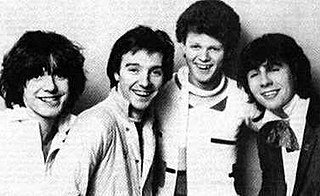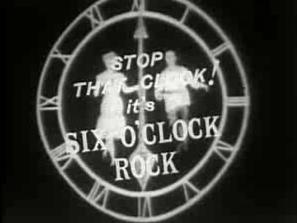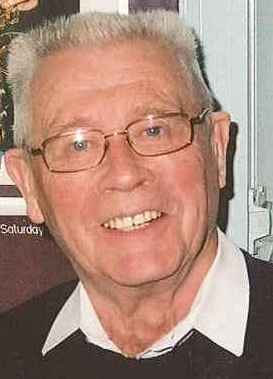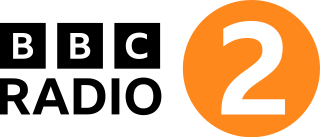
The Nine Network is an Australian commercial free-to-air television network. It is owned by parent company Nine Entertainment and is one of five main free-to-air television networks in Australia.

Pop Idol is a British music competition television series created by Simon Fuller which ran on ITV from 2001 to 2003. The aim of the show was to decide the best new young pop singer in the UK based on viewer voting and participation. Two series were broadcast, one in 2001–2002 and a second in 2003. An immense success when it launched in 2001, Maggie Brown in The Guardian wrote, "the show became a seminal reality/entertainment format once on air that autumn". Series judge Simon Cowell became a major public figure in entertainment, and the show produced instant No. 1 chart hits, including for the first series winner Will Young, whose single "Evergreen" was the fastest-selling debut in UK chart history and the best-selling song of 2002. Pop Idol was subsequently put on an indefinite hiatus after Simon Cowell announced the launch of The X Factor in the UK in April 2004.

Countdown was a weekly Australian music television program that was broadcast by the Australian Broadcasting Corporation from 8 November 1974 until 19 July 1987. It was created by Executive Producer Michael Shrimpton, producer/director Robbie Weekes and record producer and music journalist Ian "Molly" Meldrum. Countdown was produced at the studios of the ABC in the Melbourne suburb of Ripponlea. It was screened Sunday night from 6:00pm to 7:00pm.
NBN is an Australian television station based in Newcastle, Australia. The station was inaugurated on 4 March 1962 as the first regional commercial television station in New South Wales, and has since expanded to 39 transmitters throughout Northern New South Wales, including the Gold Coast, Queensland, Lismore, Tweed Heads, Tamworth, Coffs Harbour, Newcastle, and Central Coast. It is owned and operated by the Nine Network, with regional sales and newsroom located at 28 Honeysuckle Drive.

Rich Kids were a short-lived new wave band from London, founded in 1977 by Glen Matlock following his departure from the Sex Pistols. The band also included teenage guitarist Steve New, former Slik and future Ultravox member Midge Ure and Rusty Egan, who both later founded Visage together. They released one album and three singles during their existence, from March 1977 to December 1978.

Television in Australia began experimentally as early as 1929 in Melbourne with radio stations 3DB and 3UZ, and 2UE in Sydney, using the Radiovision system by Gilbert Miles and Donald McDonald, and later from other locations, such as Brisbane in 1934.

Alan Leslie Freeman MBE, nicknamed "Fluff", was an Australian-born British disc jockey and radio personality in the United Kingdom for 40 years, best known for presenting Pick of the Pops from 1961 to 2000.

Albert Watson Newton was an Australian media personality. He was a Logie Hall of Fame inductee, quadruple Gold Logie–winning entertainer, and radio, theatre, and television personality and compère.
Daryl Paul Somers is an Australian television personality and musician, and a triple Gold Logie award-winner. He rose to national fame as the host and executive producer of the long-running comedy-variety program Hey Hey It's Saturday and continued his television celebrity and status as host of the live-performance program Dancing with the Stars.

Beeb Birtles is an Australian musician, singer, songwriter and guitarist. He has been a member of various Australian groups including Zoot (1967–71), Mississippi (1972–74), Little River Band (1975–83) and Birtles Shorrock Goble (2002–07). He has also worked as a solo artist, including releasing an album, Driven by Dreams (2000). In 2004, Birtles and other members of the classic line-up of Little River Band were inducted into the ARIA Hall of Fame.
The Australian Entertainment Mo Awards were an annual Australian entertainment industry award, established in 1975, to recognise achievements in live entertainment in Australia. They were last awarded in 2016.

Six O'Clock Rock was an Australian rock and roll television show broadcast on ABC Television from 28 February 1959 to 1962 at 6 p.m. on Saturdays.
Sounds of the 70s is the name of a BBC radio programme, currently broadcast on Sundays on BBC Radio 2, with the Sounds of the Seventies name also having been used by BBC Television for a number of themed music compilations, now repeated on BBC Four.
Donald Sutherland OAM is an Australian radio and television presenter. He was the host of TV pop music show Sounds between 1975 and 1987. Sutherland has also worked as a TV producer and music journalist, and is associated with the local greyhound racing industry.

Billy Raymond was a Scottish-Australian entertainer.
Graham "Spider" Webb was an Australian radio and television broadcaster and producer.

BBC Radio 2 is a British national radio station owned and operated by the BBC. It is the most popular station in the United Kingdom with over 14 million weekly listeners. Since launching in 1967, the station broadcasts a wide range of content. The 'About Radio 2' BBC webpage says: "With a repertoire covering more than 60 years, Radio 2 plays the widest selection of music on the radio - from classic and mainstream pop to country, folk, jazz, musical theatre, soul, hip hop, rock 'n' roll, gospel and blues."

Echoes is a monthly magazine of soul, jazz, R&B, hip hop and reggae. It was founded as a weekly newspaper, Black Echoes, in 1976 and later changed its name to just Echoes. It became a monthly magazine in 2000.
3DB was a Melbourne-based radio station that opened in 1927, changed its name to 3TT in 1988, and now operates on the FM band as KIIS 101.1.











